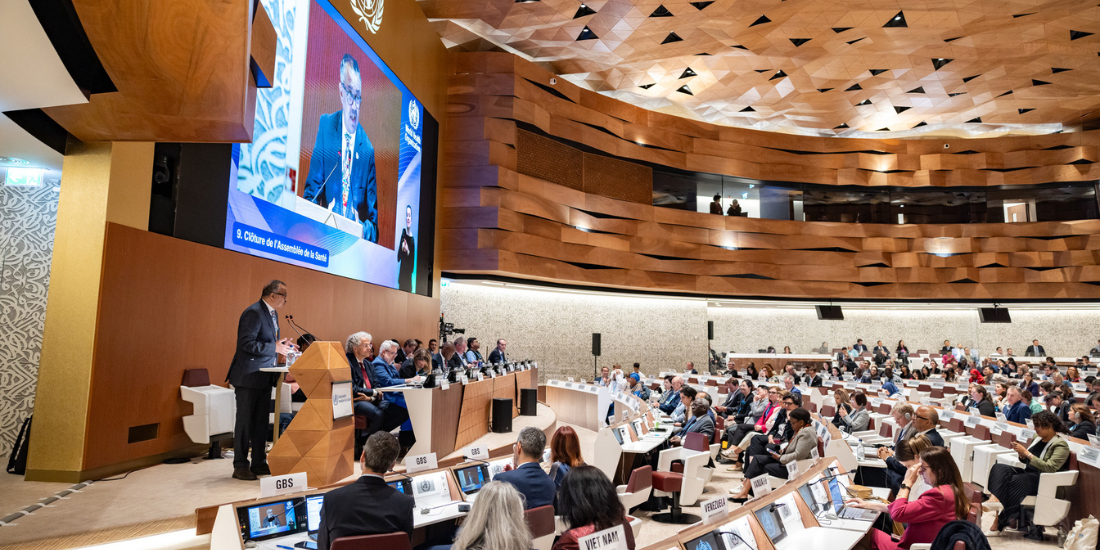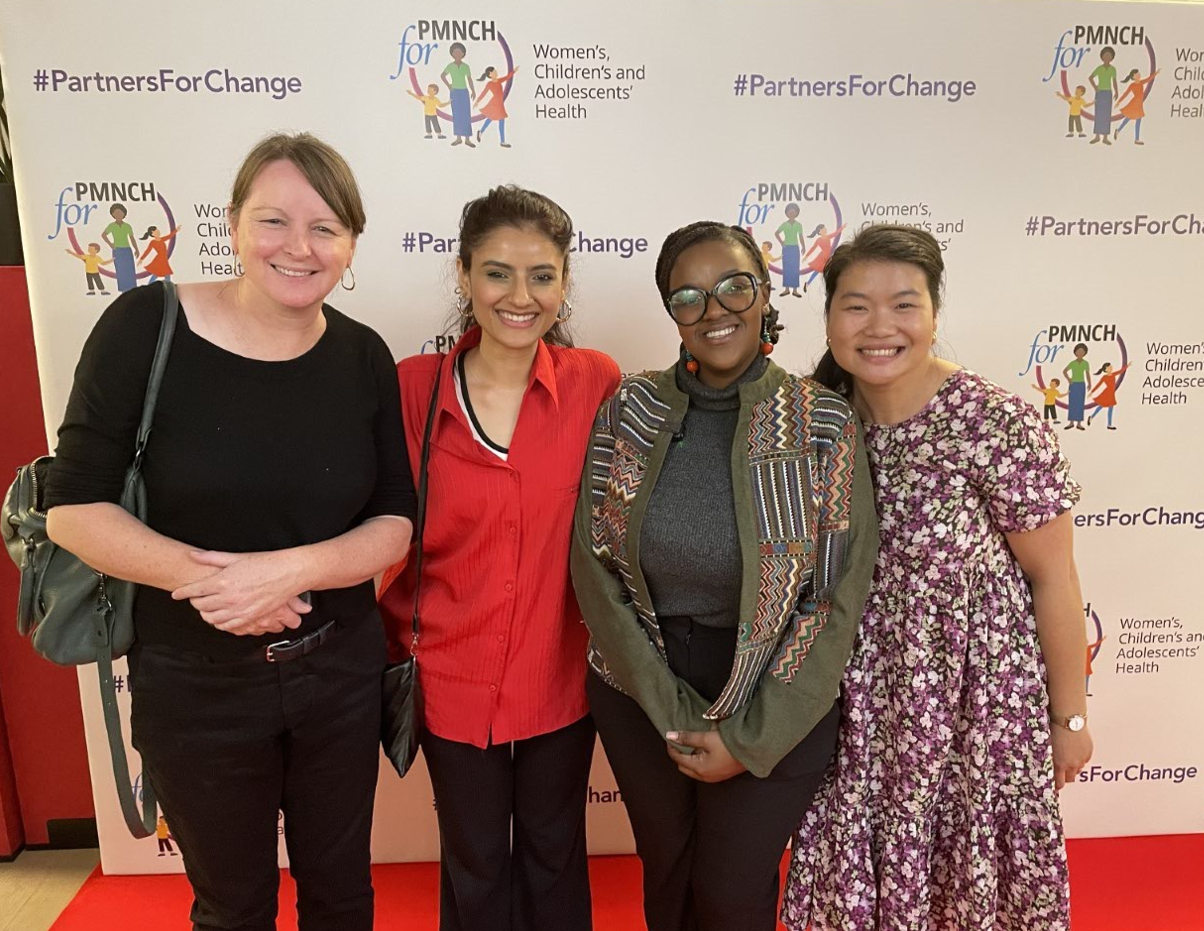
WHO Director-General Dr Tedros Adhanom Ghebreyesus at the Closing Plenary meeting of the 77th World Health Assembly at the Palais des Nations in Geneva, Switzerland, 1 June 2024. © WHO/Pierre Albouy.
The World Health Assembly is the biggest global health event of the year and was attended by health ministers from 194 countries, as well as policy makers, civil society organisations, and other stakeholders. Orygen Global's Partnerships and Programs Manager, Nataya Branjerdporn, was in Geneva for the week-long conference and reported on back on the event's major takeaways.
The urgent need for mental health investment continues to be a global priority
WHA77 had an increased recognition of mental health and neurological disorders as part of its non-communicable disease agenda. The highest number of resolutions addressing mental health were discussed, including the resolution to strengthen mental health and psychosocial support in humanitarian situations and prioritising increasing access to mental health treatment.

L-R: Orygen Director Policy and Engagement Vivienne Browne, Being Youth Advisor Muskan Lamba, United for Global Mental Health representative Aviwe Funani and Nataya Branjerdporn at the "Galvanising political leadership for maternal, newborn and child health" event.
Enhanced local and global collaboration for united action
Strengthening local learning and support systems while integrating them with global discussions is crucial for effective action on mental health. Examples of this approach include the World Health Organization’s Special Initiative for Mental Health which has generated investment evidence of mental health’s strong returns - for every million dollars spent, over two million people have access to newly available mental health services (at a cost of US$ 0.50 per person).
Innovative funding and investment models are emerging in mental health
Developing and utilising various funding models, including private and catalytic funding, is critical for supporting mental health initiatives. Effective use of metrics and realistic financial strategies are necessary for measuring and enhancing impact. Both the Brain Capital Alliance and The Clinton Foundation's Coalition for Mental Health Investment are examples of emerging initiatives exploring innovative investment models.
Elevating youth and lived experience voices for the mental health agenda
Actively involving and elevating young people in mental health discussions and advocacy was a feature in WHA77 side events. One such example is the Being initiative, a global initiative focused on the promotion and prevention of youth wellbeing where young people are at the heart of its approach, serving as program advisors and key stakeholders, with youth-led organisations central to executing Being’s work .